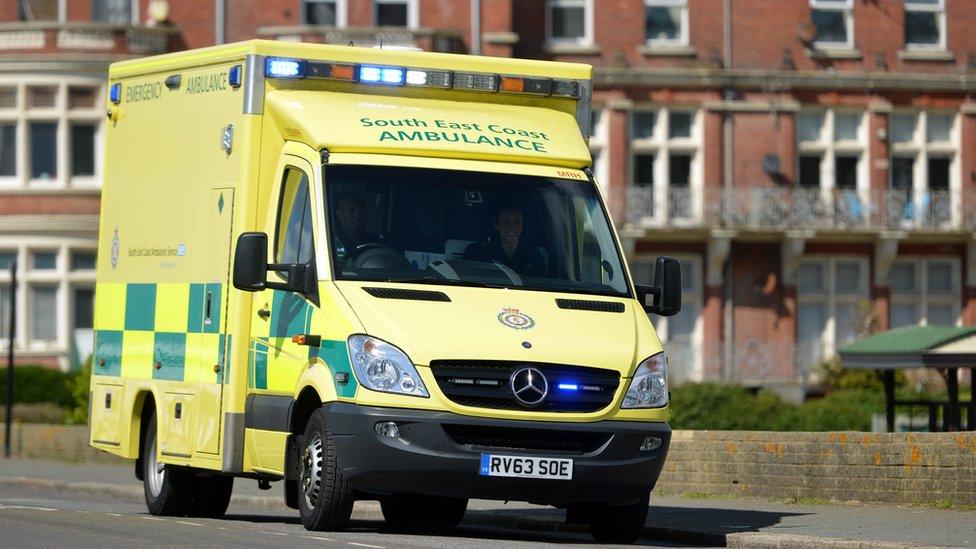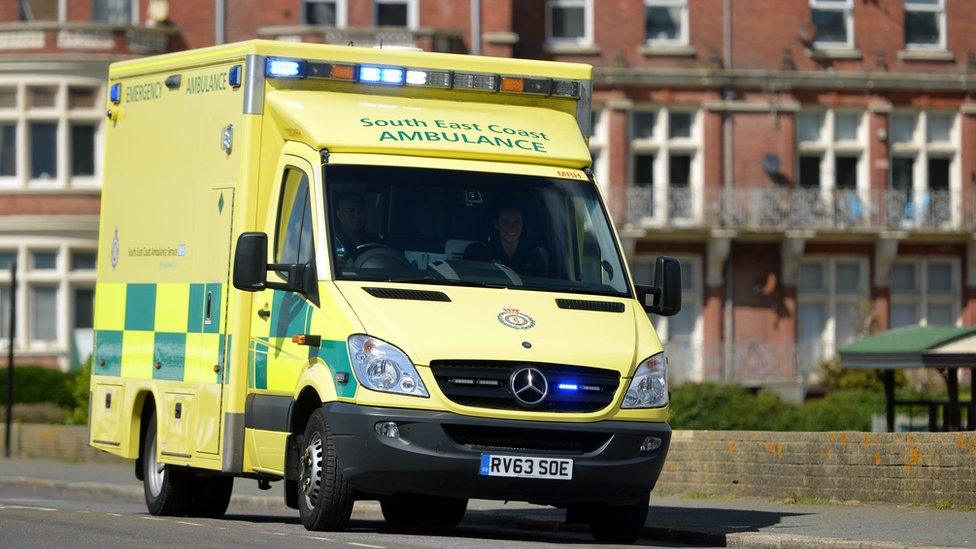NHS report exposes South East Coast Ambulance pilot errors
- Published

Secamb gave itself an extra 10 minutes to deal with some potentially life-threatening calls
Up to 20,000 patients had their ambulances delayed while an NHS trust took extra time to assess their conditions, it has emerged.
A leaked document says call handlers told patients ambulances had been dispatched, with no idea they were not.
It said it is impossible to conclude that patients were not harmed and has examined seven "serious incidents".
The South East Coast Ambulance trust said it has "not found the process impacted negatively on patients".
The ambulance service's council of governors met the trust's chairman, chief executive and non-executive directors on Tuesday to discuss the issue.
It was given further information on the grounds for concerns and the process that will follow.
Brian Rockell, South East Coast Ambulance's (Secamb) lead governor, said: "I am confident that the process outlined will allow the council to fulfil its statutory duties and be assured that a quality service is provided to our patients."
NHS England has confirmed plans to publish the leaked report on Thursday.
A Secamb spokesperson reiterated its previous statement that "the purpose of the process was to protect patient safety by ensuring that our most seriously-ill patients received the care they needed as quickly as possible".
It added: "There has been some suggestion that this resulted in less serious patients being harmed. We would like to make it clear that our investigations to date have found no evidence to support this suggestion.
'Truly shocking'
The draft report examines a pilot project at Seacamb which was launched in secret by a clique of senior managers.
It was set up without the knowledge of 111 staff, board non-executives, the medical director or local commissioners of services. Secamb covers Kent, Surrey, Sussex, Brighton and North East Hampshire.
In the project, the trust decided to transfer certain 111 calls to the 999 system, thus gaining up to 10 additional minutes to assess patients' conditions.
In one case - known to be the death of a 60-year-old Horsham man who had suffered a cardiac arrest - there was a "missed opportunity" to improve his outcome, the report said.
It found: "We cannot conclude that patients were not harmed by the R3/G5 project, as all the facts are not known for the calls that went unanswered or for the callers who had significant delay by the re-triage process."
The report said the trust's efforts to check whether harm was done to patients were neither "appropriate" nor safe.
Patients Association Chief Executive Katherine Murphy said: "The reports today are truly shocking. There has been a complete disregard for patient safety through a policy that has put thousands of patients at risk."
Health regulator Monitor said the trust had not fully considered patient safety.
It has added a condition to Secamb's licence so that if insufficient progress is made, the leadership team could be changed.
Seacamb Chief Executive Paul Sutton has defended the project but also admitted: "These are serious findings."
- Published30 October 2015
